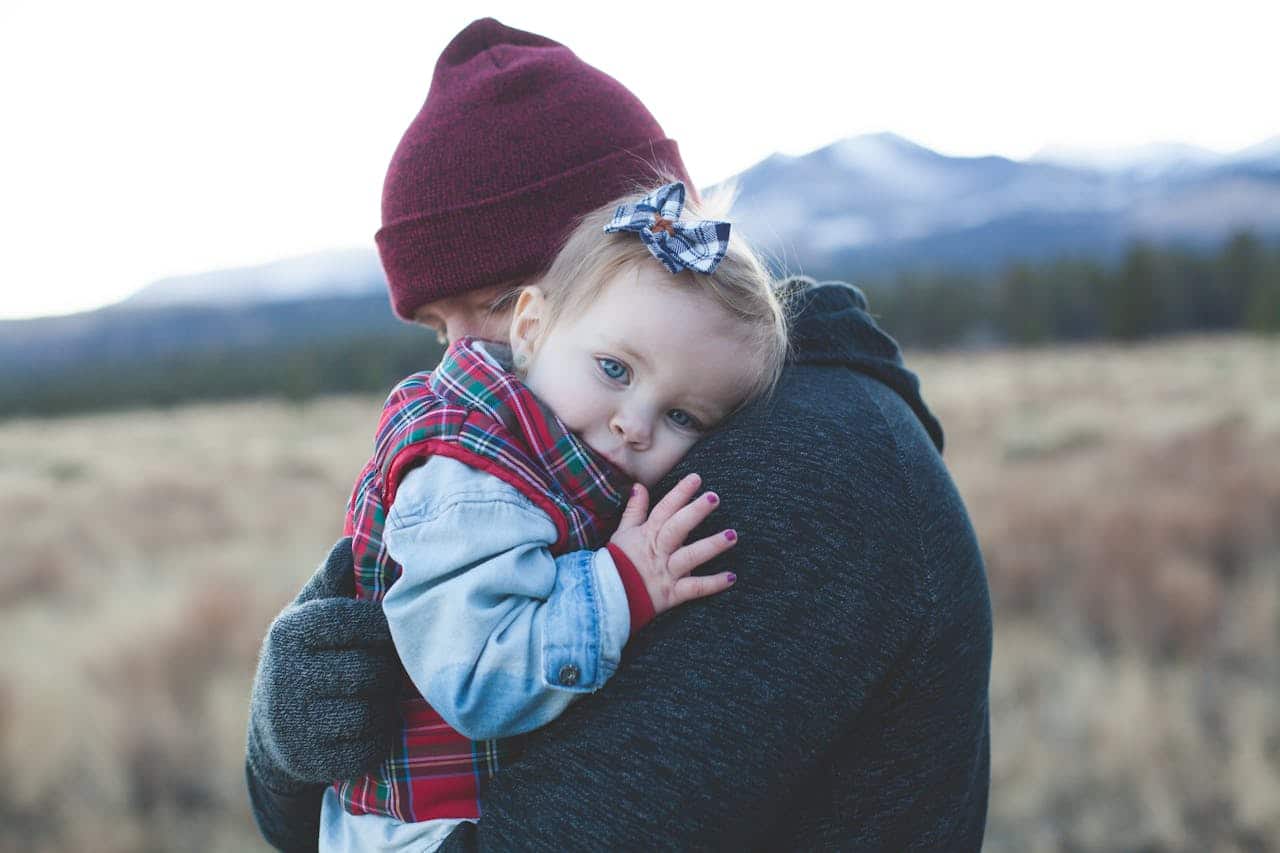Celebrating the Fourth of July, Independence Day, is a great time for families. But if you’re a parent with an autistic child, getting ready for the day might need some extra steps. So, the question we’ll explore today is: How to Prepare Your Autistic Child for 4th of July?
Having a family with different needs doesn’t necessarily mean that you don’t get to celebrate at all. Here, we’ll show how you can celebrate Independence Day in a way that respects and accommodates your child’s unique needs.
Success Stories
“Move Up ABA has been a lifeline for our family. Before starting therapy, our son struggled with daily routines and communication. Now, he’s more independent and even initiated a conversation with a classmate for the first time! The progress we’ve seen in just six months is truly remarkable.”
- Emily R., Silver Spring, Accountant
“As a single dad, I was overwhelmed trying to manage my child’s behavior. The Move Up ABA team not only provided amazing support for my little girl but also taught me practical strategies to use at home. Their in-home sessions fit perfectly with our busy schedule. I’m so grateful for their patience and expertise.”
- Michael T., Rockville, Middle School Teacher
“We were hesitant about starting ABA therapy, but Move Up ABA’s approach put us at ease from day one. Our twins have made incredible strides in their social skills and self-regulation. The therapists are like extended family now, and we couldn’t be happier with our decision to work with them.”
- Aisha and James L., Simpson, Police Officers
Ready to start your child's journey to success? Schedule a free consultation today! 📞 Call (410) 497-8865.
Understanding Your Child’s Needs During Celebrations
For kids with autism, big celebrations might be a lot to handle because they’re really sensitive to things around them and like things to stay the same. If we know what kinds of sensations are okay for them and plan fun stuff that fits, it can stop everything from getting too much.
Having things happen in a way they expect makes them feel safe and calm. When we keep these points in mind, it helps make sure your child feels good during any special times together.
Recognizing Sensory Sensitivities and Preferences

During celebrations like the 4th of July, it’s important to think about how things like bright lights, loud noises, and being around lots of people might be too much for autistic kids. By knowing what makes your child uncomfortable, you can make changes so they have a better time.
For example, using headphones that block out sound or sunglasses can help lessen their discomfort from all the sensory stuff going on. Paying attention to and taking care of these special needs means your child can enjoy the holiday fun just as much as everyone else.
Importance of Routine and Predictability for Autistic Children
Kids with autism like things to be the same every day because of their condition, which is part of being on the autism spectrum. When big events come up, like Independence Day, having a plan that doesn’t change much can help keep them calm and stop them from feeling too overwhelmed by everything going on around them.
By making sure they eat at the same time they usually do and go to bed when they’re supposed to, you give your child a safe bubble. They know what’s happening next, which makes it easier for them to move from one thing to another without getting upset. It’s important to think ahead and try not to switch things up too much during celebrations or other special days so that kids with autism can have fun along with everyone else.
Preparing for the 4th of July
To get an autistic child ready for the 4th of July, you must first make sure they have a peaceful place at home and wherever you’re celebrating. Choose things to do that won’t bother their senses too much.
Creating a Calm Space at Home or the Event
During the July 4th celebrations, it’s important to create a calm spot for your autistic child, either at home or where you’re celebrating. Start by picking out a quiet corner away from bright lights and loud noises, which can cause sensory overload.
In this space, add things that make them feel safe, like their favorite weighted blanket or noise-canceling headphones. This special area is perfect for when everything gets too much, offering them a secure place to go back to. Keeping things familiar and comfortable is crucial in helping your autistic child enjoy the festivities without feeling overwhelmed.
Selecting Autism-Friendly Activities for the Day
When planning the day’s events, think about what your child likes and how they handle different senses. To keep away from sensory overload, choose places that are not too loud or busy. Doing things like playing with textures or making art can help them feel calm.
It’s also good to include stuff they know and love because it makes them feel safe. Make them feel comfortable discussing with you by asking questions like “Does Kanye West have autism?” or other controversial topics that will get them to open up.
Going outside for a walk in nature or having a picnic that doesn’t bother their senses is another awesome idea. Picking activities friendly to kids with autism will make sure your child has fun and stays comfy during the 4th of July celebrations. Always put how your child feels first as you go through the day.
Discussing the Event in Advance with Your Child
Talking to your autistic child about the 4th of July before it happens is important. By doing this, you can help them know what’s coming up, which makes things less scary and helps avoid too much sensory overload.
You could use simple stories or pictures to show them what the day will look like and talk about all the fun stuff that’s going to happen. It’s good to let them ask questions and make some choices too. This way, they feel more in charge and comfy with all the holiday activities around them. Getting ready ahead of time means everyone has a better chance of enjoying the festivities together.
Sensory-Friendly Celebration Ideas
To make the Fourth of July enjoyable for your autistic child, it’s all about planning with care. Instead of traditional fireworks that can be too much for them, try using alternatives that won’t cause sensory overload.
Activities like having ice cream or a picnic keep things low-key and fun. Make sure to have their favorite foods and some comfort items around to help if they start feeling uneasy. Using noise-canceling headphones is a great idea to keep loud noises at bay during the celebrations. By creating a peaceful setting, you’re helping your child have a good time during the holiday festivities without getting overwhelmed.
Safe Firework Alternatives for Sensitive Ears
To make the 4th of July enjoyable for your autistic child, think about getting noise-canceling headphones to block out loud noises. Instead of traditional fireworks, try glow sticks or LED light toys. These are much safer and can still provide a fun visual show without causing any sensory discomfort.
Engaging in Quiet, Enjoyable Activities
To help your autistic child feel calm and happy during festivities, consider doing some peaceful activities together. For example, you could read a book they like or work on a puzzle that’s not too noisy.
Drawing with colored pencils or getting into a quiet art project are great options because they’re gentle on the senses. By including these kinds of relaxing things to do, your child can find their own comfortable space amidst all the celebration noise and enjoy themselves in their own way.
Incorporating Familiar Foods and Comfort Items
During the July 4th celebrations, it’s a good idea to pack some of your child’s favorite snacks or foods that make them feel at ease. Familiar tastes can help them feel secure while enjoying the festivities. By choosing snacks they love, you’re providing comfort and a bit of normalcy throughout the day.
Also, taking along things like their favorite toy or a warm blanket can make everything more familiar for your autistic child. This helps lower stress levels and makes them feel calm amidst all the excitement.
Navigating Social Situations
When you’re out celebrating the Fourth of July with your autistic child, it’s important to let others know what your kid needs. By using simple tools like social stories and giving clear directions, you can make sure everyone gets how to best support your child.
How to Communicate Your Child’s Needs to Others

Let family and the people planning the event know about things that might be too much for your child, like loud noises or crowds, and how they can help them feel better. With tools like social stories or pictures, you can show others exactly what helps your kid. Asking everyone to be patient and kind makes a big difference too.
When we all understand each other better, it means your child can join in on the fun without feeling overwhelmed by everything going on around them. This way of doing things not only includes everyone but also lowers the chances of sensory overload for kids who are autistic.
Strategies for Managing Crowds and Social Interactions
For kids with autism, dealing with big crowds and socializing can be tough, especially during the July 4th festivities. It’s key to have a plan ready to help them cope. One approach is getting there early to pick a spot at the edge of the crowd, which gives them plenty of personal space.
A blanket can also act as a visual marker for their own area. Planning ahead for breaks and setting up a “safe space” where your child can go if they need to calm down is helpful too. Bringing along things they like that keep their senses engaged, such as headphones or fidget toys, might make crowded places feel less overwhelming for them. And don’t forget about having an escape plan in case things get too much for your child.
Safety Measures and Comfort
It is super important to make sure your autistic child feels safe and comfy during the July 4th celebrations. By ensuring their safety and making them feel at ease, you can help lessen their anxiety and the chance of sensory overload.
Personal Identification Options for Public Events
Attending public events on July 4th can be overwhelming for autistic children, and it’s important to ensure their safety and security. One way to do this is by providing personal identification options that can help in case of an emergency or if your child becomes lost.
Here are some personal identification options to consider:
Option | Description |
| ID Cards | Create or purchase ID cards with your child’s name and your contact information. This can be worn on a lanyard or attached to their clothing. |
| Medical Alert Bracelets | If your child has any medical conditions or allergies, consider getting them a medical alert bracelet that includes this information. |
| Temporary Tattoos | Temporary tattoos with your contact information can be applied to your child’s arm or hand. These can be easily removed and are a discreet way to provide identification. |
| Phone Number Wristbands | Wristbands with your phone number can be worn by your child and easily accessed in case of separation. |
| GPS Tracking Devices | Some wearable GPS tracking devices are available that can help you locate your child if they become lost. |
Emergency Plans and Coping Strategies
Putting together emergency plans and ways to deal with tough situations can make July 4th celebrations a lot easier for you and your autistic child. These strategies are great for handling difficult moments, keeping your child safe, and making sure they’re okay.
A key part of these emergency plans is having an exit strategy. This means figuring out a quiet place where your kid can go if things get too much for them. It’s all about controlling their sensory input when it becomes overwhelming. Make sure to talk about this plan with your child before the event starts, so they know how to tell you if they need that break.
For dealing with sensory overload and anxiety, coping methods come in handy. Using deep pressure techniques like cuddling up under a weighted blanket or playing with sensory toys can help your child calm down by themselves. Always have something soothing on hand—like their favorite calming activity or comfort item—to help manage any overstimulating situations during the July festivities.
Post-Event Recovery and Reflection
After the July 4th festivities, it’s key to give some time for cooling down and thinking things over. This step is really helpful for your autistic child to understand what happened during the event and figure out how to make future celebrations better.
Debriefing the Experience with Your Child
Talking about the July 4th event with your autistic child can be a great way for them to share how they felt, talk about what happened, and learn from it all. By creating a welcoming environment, you encourage your kid to open up about their thoughts and feelings.
It’s important to listen and show that you understand where they’re coming from. Highlighting the good parts of the day is key. Celebrate how well they handled sensory overload or anxiety. Talk over any strategies that helped them cope during the celebration and suggest keeping those methods in mind for next time.
This chat could also help figure out if there are ways to make future events more comfortable based on what your child tells you worked or didn’t work this time around.
Adjusting Plans for Future Celebrations Based on Insights
After talking about how the July 4th event went with your autistic child, it looks like you might need to change how you celebrate in the future. This is so your kid can have a better time and feel more included.
- With what happened on July 4th in mind, think about what made things tough for them. Try to come up with ways to keep those hard moments from happening again. Maybe pick quieter spots or different kinds of fun that don’t get too overwhelming.
- Keep chatting with your child to see what they like and where they’re most comfortable. Let them help decide how you’ll celebrate next time. By really listening and tweaking plans based on their input, celebrations can become something they look forward to because it fits better with their autism needs.
Conclusion

Getting your autistic child ready for July 4th means getting what they need. It’s important to know about things that might bother their senses, keep their usual routines going, and make sure there’s a peaceful place for them. Picking activities that are good for kids with autism and talking about the day before it happens can help make the holiday fun. By doing these things, you can create a caring space where your autistic child feels part of the July 4th fun.
For families in Baltimore, MoveUp ABA is a trusted ABA agency that can provide personalized Applied Behavior Analysis (ABA) services to support individuals with autism spectrum disorder (ASD) and related developmental disabilities. Whether you need guidance on managing sensory sensitivities or developing effective coping strategies for public events like the 4th of July, MoveUp ABA offers expert assistance to help your child thrive in various environments. Reach out to us today!
Frequently Asked Questions
How can I make fireworks less distressing for my autistic child?
If you have an autistic child and loud noises from fireworks are a concern, think about getting some noise-canceling headphones to lessen the sound. By watching the fireworks from far away or inside your house, you can also create a peaceful setting that helps avoid sensory overload for your child.
What are some autism-friendly activities for the 4th of July?
For the 4th of July, you can enjoy some autism-friendly activities like throwing a low-key barbecue with your family at home. Another idea is to watch fireworks from somewhere cozy and well-known to you or take part in events designed especially for people with autism that are mindful of sensory needs.






